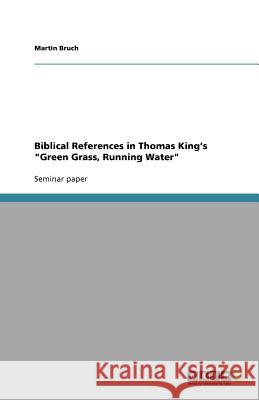Biblical References in Thomas King's "Green Grass, Running Water" » książka
Biblical References in Thomas King's "Green Grass, Running Water"
ISBN-13: 9783640780860 / Angielski / Miękka / 2010 / 40 str.
Seminar paper from the year 2004 in the subject English - Literature, Works, grade: 1,0, University of Constance, course: (Re-)Writing Gender in Contemporary Native North American Literature, language: English, abstract: In reading Thomas King's novel Green Grass, Running Water we inevitably come across many references to biblical names and stories. Intertextuality is a major technique in the novel and especially the mythical stories are explicitly interwoven with hints to the Bible. The author deals with canonical texts as well as with Indian myths and, as we're going to see later, also with historical events etc. He takes up names and parts of the pre-text and re-writes them. "It is essential to note, however, that these pre-texts are not opposed to each other as part of a binary structure. Rather they interact with one another and form something new each time they are told"1. Besides the many direct and indirect references, there are also several correspondences between the structure of Green Grass, Running Water and the Bible, e.g. the four stories told by the four old Indians can be seen as a parallel to the four gospels in the New Testament2. In the following I am going to focus on explicit references in the four mythical stories that develop in the conversation of the trickster Coyote and a first person narrator. The main part of this analysis is the comparison between the biblical pre-texts and King's re-writing. As the actual parallels are very few there has to be some other idea behind these intertextual devices. It is probably more about history and hierarchy than about the pure pre-text.











